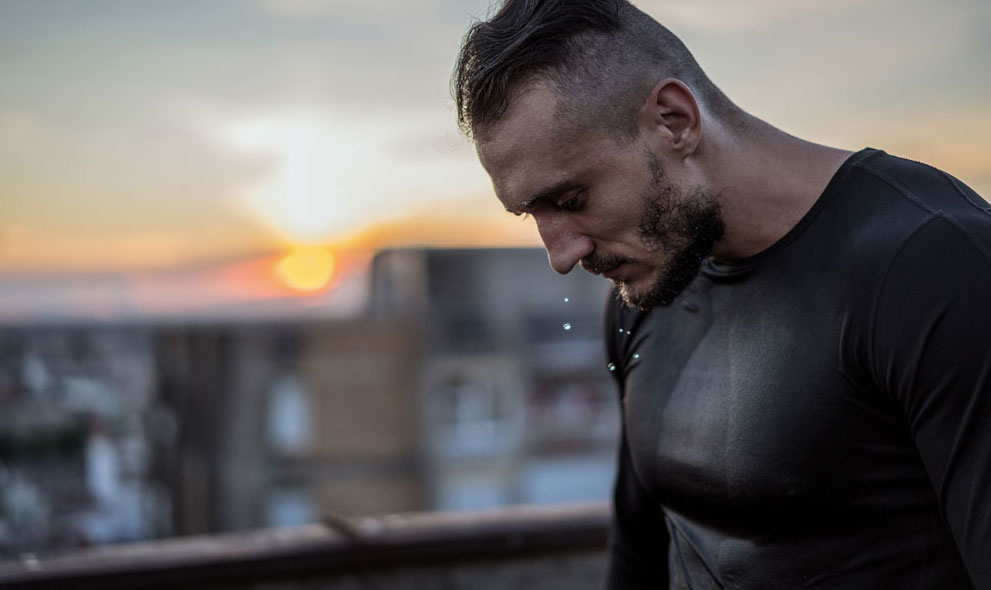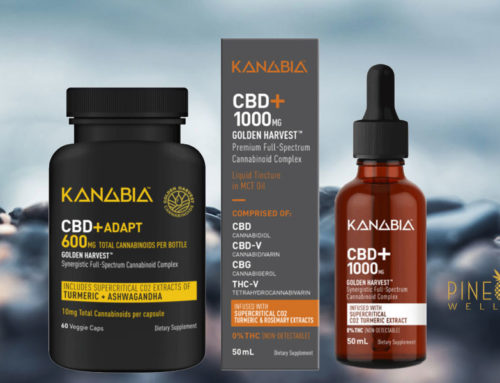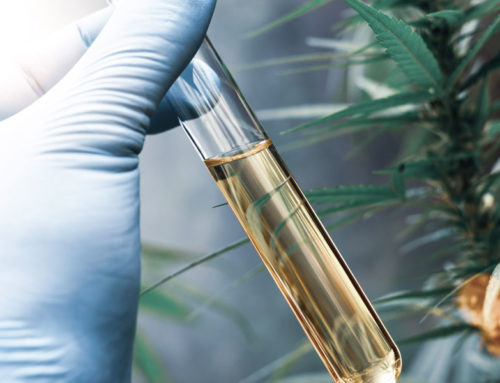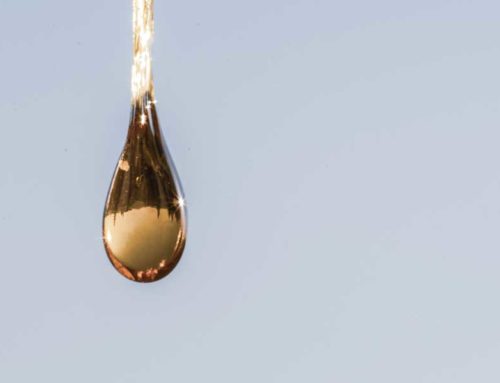Everyone these days is talking about CBD. It’s become THE go-to natural alternative to ibuprofen. Touted as an antidote to anxiety, a sleep aid, post-workout recovery booster, and used by everyone from top athletes to almost everyone who is frustrated with chronic conditions.
More and more endurance athletes are opening up about how the substance is helping them boost recovery between workout sessions and competitions, improve focus, ease exercise-related pain, and aide in sleep, which is a time when bodies repair and restore themselves.
CBD has become a crucial part of athletes’ regimens around the world, from sun-loving surfers to professional athletes and Olympic competitors. People of all levels of exercise and athletics are using CBD to help performance, reduce pain, and enhance recovery. And, as interest continues to grow among health and fitness junkies, people have started to look for new ways to enhance their fitness routines.
So, chances are high (no pun intended) that you are wondering why all these athletes are turning to CBD and if it is the right choice for you.
What exactly is CBD, and why are athletes using it? Here’s what you need to know.
Is CBD legal? Yes.
As of January 2018, the World Anti-Doping Agency (WADA) and the US Anti-Doping Agency (USADA) removed CBD from the list of prohibited substances – in or out of the competition. Note: ONLY CBD was removed from the list of prohibited drugs.
THC, the psychoactive component of cannabis, remains prohibited in competition, as are synthetic cannabinoids, “The following cannabinoids are prohibited: Natural cannabinoids, e.g. cannabis, hashish, and marijuana. Synthetic cannabinoids e.g. Δ9-tetrahydrocannabinol (THC) and other cannabimimetics.” And, the 2018 Farm Bill includes a provision that legalizes the cultivation of hemp (cannabis with less than 0.3 percent THC) in large part because of the popularity of CBD.
Almost all commercially available CBD products are made from industrial hemp, a cannabis plant that, by definition, contains no more than 0.3 percent THC. With hemp federally legalized, and more states legalizing recreational cannabis, CBD is poised to become the ibuprofen of the next generation of athletes.
How does CBD work?
In the 1990s, Israeli scientists discovered endocannabinoids, natural cannabis/hemp-like molecules produced by and within our bodies. The primary function of the endocannabinoid system is to maintain homeostasis—harmony within the body in response to changes in the environment.
They also discovered we have endocannabinoid receptors, which are present throughout our bodies, including our skin, immune cells, bone, fat tissue, liver, pancreas, skeletal muscle, heart, blood vessels, kidney, and gastrointestinal tract. And, that our endocannabinoid system is involved in a wide variety of internal processes, including pain, memory, mood, appetite, stress, sleep, metabolism, and immune function. PS, your pets have an endocannabinoid system too!
The cannabinoid CBD (cannabidiol) interacts with our body’s endocannabinoid system, basically exerting its effects on us by mimicking our own endocannabinoid, according to current research.
CBD, the non-psychoactive chemical compound found in hemp, potentially works in all different types of discomfort, from musculoskeletal and inflammatory to neuropathic, and could be an effective analgesic, helping reduce pain both during and after exercise.
So how exactly does it support athletes and exercise enthusiasts?
CBD may help support our bodies’ ability to heal itself naturally. Like many parts of our body, the endocannabinoid system can become imbalanced. As CBD interacts with our body’s endocannabinoid system, which maintains the healthy functioning of cells and coordinates healing, CBD has the potential to mimic some of our natural neurotransmitters, and interacts with receptors, supporting the suppression of the immune system responses that cause inflammation.
When exercising, we apply more stress to our body than when we’re at rest. This additional stress is more than our endocannabinoid systems can handle on their own. This is where adding exogenous CBD comes into play: CBD is the extra boost of support our endocannabinoid system is craving when we’ve sweated and worked out hard – especially if you’re a competitive athlete or playing in sports that are physically demanding.
6 POWERFUL WAYS CBD CAN HELP ATHLETES HEAL AND RECOVER
CBD is a healthy alternative to NSAIDs and Opioids
Over-the-counter (OTC) and prescription anti-inflammatory medications are easily available, readily prescribed, and very commonly used. The most common anti-inflammatory medications are called NSAIDs: non-steroidal anti-inflammatory drugs. For years NSAIDs (i.e., Ibuprofen, Aspirin, Aleve) were thought to have little to no side-effects. Lately, they are among the most controversial. Why? It turns out they increase your risk for heart attack and stroke.
Opioids (i.e., oxycontin, morphine, codeine) were used for decades – and still are today – by competitive athletes for pain management. They are potent drugs used for decreasing pain, but they carry a significant risk of addiction and death by overdose. Because of their overuse and over-prescription, the United States is in the midst of an opioid crisis. According to the National Institute of Drug Use (NIH) statistics, in 2017 there were over 47,000 opioid overdose deaths in the United States, with a 12.9-fold increase from 2007 to 2017.
CBD, on the other hand, does not carry the risk of overdose or fatality. According to the DEA, “No deaths from overdose of [cannabis] have been reported.” As describes by the NIH’s National Cancer Institute, this is because “cannabinoid receptors, unlike opioid receptors, are NOT located in the brainstem areas controlling respiration – lethal doses from cannabinoids do not occur.”
CBD is a potential pain reliever: during and after workouts
CBD is potentially an effective analgesic both during and after exercise. The cannabinoid CBD is thought to reduce discomforts via two major pain-signally pathways: the descending pain inhibitory pathway, which is the brain’s way of telling the rest of the body to stop sending pain signals, and the ascending pain inhibitory pathway, which prevents pain signals from being sent in the first place.
Athletes have discovered the profound benefits CBD offers: A natural pain-relieving alternative that has the potential to reduce exercise-induced inflammation and pain, with minimal to no side effects.
CBD may support greater focus and reduced anxiety
Athletes have personally experienced what researchers at the University of San Paulo in Brazil and King’s College in London discovered: CBD has the potential to relieve anxiety. CBD at high concentrates directly activates the 5 HT1A (hydroxytryptamine) serotonin receptor, thereby conferring an anti-anxiety effect.
CBD may support better sleep cycles and fatigue
We could all use some more shut-eye, right? Our ability to stay awake, fall asleep peacefully, soundly asleep, and wake up feeling rested is a process potentially connected to our endocannabinoid system. The inactive state of sleep is essential for our health and is a critical process helping us build up our immunity, repair our tissue, regulate our metabolism blood, control our appetite, balance our blood sugar, store our memories, and process not only our daily activities but also process what we have learned, physically and emotionally.
Turns out, all of these vital processes are potentially regulated by our endocannabinoid system. Research is believed to show that a healthy endocannabinoid signaling regulates sleep stability. Supposedly, adding exogenous CBD boosts our bodies’ endocannabinoid system after workouts, supporting our internal biological processes to work optimally.
Here’s how you can incorporate CBD into your exercise routine
- CBD can be consumed in a variety of ways, from simple oral consumption to topical use.
- Creams and lotions that contain CBD oil can be used topically to support muscle soreness, aches, pains, and injuries.
- CBD tinctures/drops that can be placed under your tongue and used before and after your workout regimen to support your bodies bounce back and recover from your workouts and activities.
CBD is also available as “full-spectrum” or “isolate.” Full-spectrum – also called “whole-plant” – are CBD products that contain CBD and other cannabinoids, flavonoids, terpenes, and healthy fatty acids. This version of CBD oil is minimally refined so that most of the cannabinoids and terpenes remain intact. If the CBD was derived from industrial hemp, the THC content of the original plant is less than .3%. Its CBD potency is usually lower than CBD Isolate but carries the full benefits of the whole plant.
CBD Isolate – often called “pure CBD” products, have been refined to isolate only the CBD compound with no other cannabinoids or terpenes. Its CBD potency is usually higher than full-spectrum, meaning a small dose is recommended.
Ready to add CBD to your fitness regimen?




